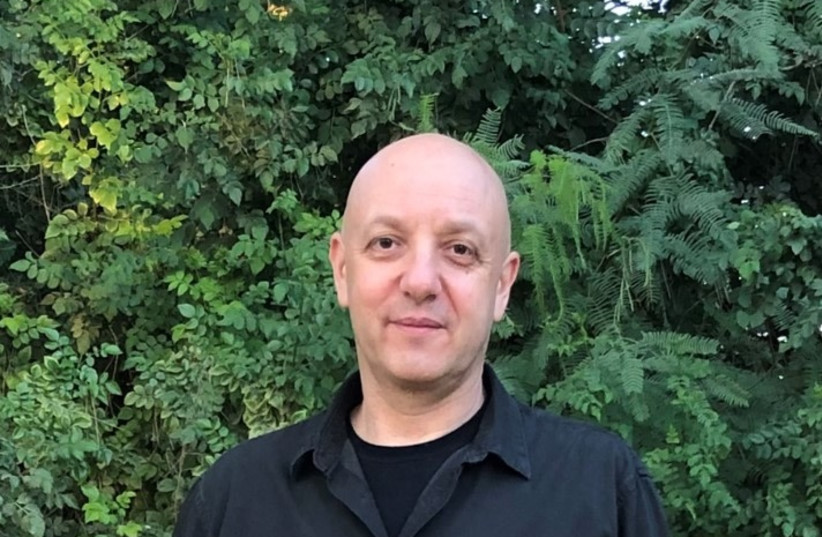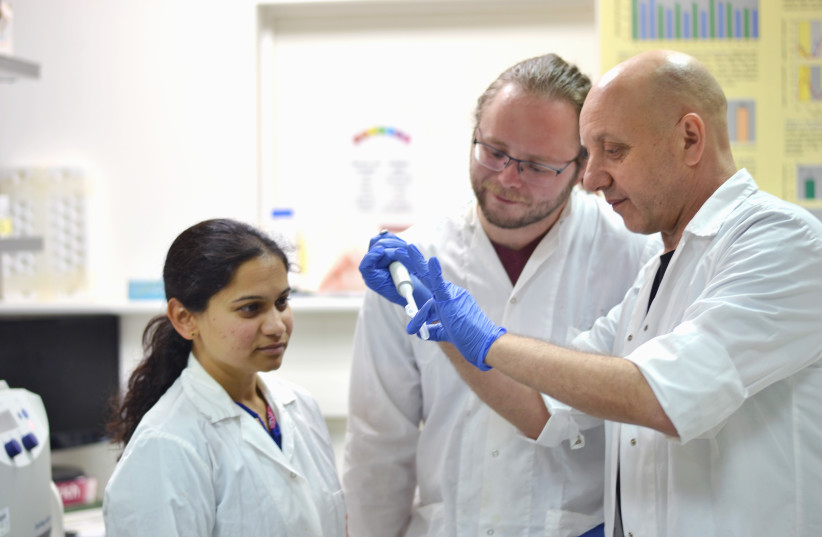An experiment to grow plants on the moon by a team of researchers from Ben-Gurion University of the Negev’s Jacob Blaustein Institutes for Desert Research at Sde Boker has been selected to be performed in Space-IL’s “Beresheet 2” spacecraft expedition.
The SpaceIL Association is at the last stage of the selection of experiments that will be integrated into its journey to the moon for the Beresheet 2 mission, which is expected to be launched in 2025. The mission is a planned private space mission intended to land two spacecraft on the moon in three years.
The first Beresheet mission was launched in April 2019. On November 25, 2019, it was simultaneously announced that the moon would indeed be the target of Beresheet 2 and that SpaceIL plans to send another lander to Mars.
The association said the plant growing is an important step toward proving the ability to grow food and medicines under lunar conditions, along with providing oxygen for astronauts who will land on the moon in the future, as well as learning new ways to maximize sustainable food production on Earth.
The researchers selected to be a part of Space-IL's "Beresheet 2" spacecraft expedition

The team consists of an international consortium of engineers, biologists and space professionals. The biological team consists of researchers from the fields of plant biology and imaging. The team’s coordinator is Prof. Simon Barak from the Blaustein Institutes. Barak received his doctorate from Ben-Gurion University (BGU) and earned a post-doctorate at the University of California at Los Angeles, studying the circadian clock of plants. His research focuses on identifying genes that allow plants to tolerate the harsh environmental stresses characteristic of arid regions.
In the past, Barak and his colleagues found that by removing two different genes from the Arabidopsis plant, its tolerance to heat, salt and drought could be increased. An agreement between BGN Technologies, BGU’s technology-transfer company, and Bayer Crop Science will help them identify additional genes that have an effect on making plants more “stress-resistant.”
The plant growing on the moon will be carried out in cooperation with Lunaria One, an international consortium made up of universities and public bodies for increasing sustainable activities in space. Alongside the technological and scientific activity, the consortium has the same goals as the SpaceIL Association, including a desire to have the general public participate in space exploration, promote education and thus bring additional professionals closer to the field of space in the future.
To carry out the experiment, known as Aleph, Lunaria One recruited experts in the fields of engineering, biology and education. As a joint initiative for the common good, the project involves the combined effort of a large number of organizations around the world, commercial companies, BGU, the University of Cape Town in South Africa, and Australia’s Queensland University of Technology, Royal Melbourne Institute of Technology and Australian National University.
In addition to the team of experts, the Aleph team said it would invite people of different ages from around the world to offer unique solutions to the challenges that arise in this project.
Beresheet 2 will include a mother spacecraft and two landers that will set down on both the light and dark sides of the moon. The mother spacecraft will continue to orbit the moon for about five more years.
Aleph, the chosen experiment, will fit into one of these landers. As part of the experiment, a small hermetically sealed container will carry seeds and plants that can survive in a dormant/dried state and can “awaken” again when irrigated. The types of plants will be carefully chosen according to the ability to grow quickly and the ability to withstand extreme temperatures.
After landing on the moon, plant growth will be monitored for 72 hours with data and images transmitted within 24 hours.

“The Earth and its resources are finite,” said Barak, who will serve as coordinator of Lunaria One’s biological team. “The future existence of humanity depends on reaching the stars.”
SpaceIL Association CEO Shimon Sarid said: “The chosen experiment has enormous value both for our life here on Earth and for humanity’s progress in space exploration. Examining plant growth under extreme conditions can help us take action correctly in the future regarding food security as the climate here changes. As for space, plant growth will help humanity in long-term missions. We are happy about the collaboration with Lunaria One and are very excited about it.”
The core value that guides the Aleph project is that “space exploration is for everyone,” he said. “We don’t want a future where only remote-controlled autonomous machines can exist outside the Earth, but a future where humans can live and thrive in space and on the moon.”
“The central value guiding this project is that space exploration is for everyone; we don’t want a future where only autonomous and remote-controlled machines inhabit realms beyond earth, but where humans can live and thrive,” Sarid said. “The key to this is to get humans involved and to give them a say in how we get there.”
Lunaria One director Lauren Fell said: “The Aleph project aims to open up the science and engineering behind growing life on the moon so that anyone can be involved. The goal of Project Aleph is to simplify the science and engineering behind growing plants on the moon so that everyone can be involved and connected.”
Caitlin Birt, an associate professor and scientific advisor to Lunaria One from Australian National University in Canberra, said: “Plant research on the moon is critical to our food security on Earth and in space. Space is an extraordinary testing ground for examining how to grow plants in the most extreme environments. As a result of the extreme climate changes the Earth is facing, challenges arise in managing food security in the future. Project Aleph creates an opportunity for everyone to explore how to create a safe and supportive environment for plants to flourish.”
